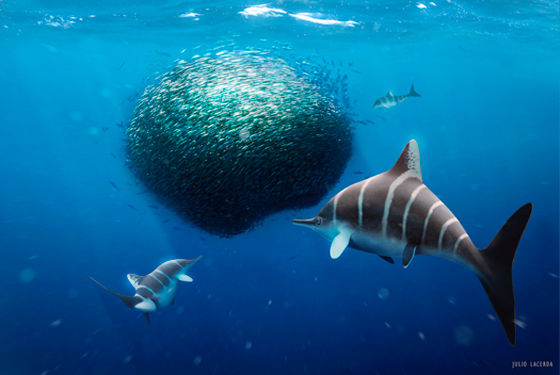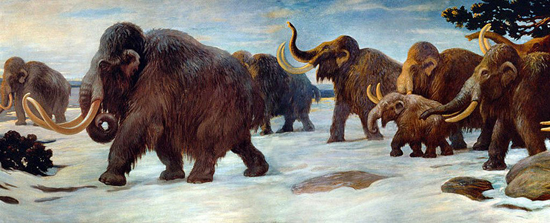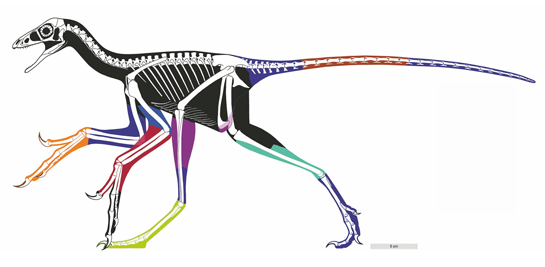Dorset Crocodile Discovery is Named in Honour of Rudyard Kipling
The fossilised remains of a prehistoric crocodile, unearthed in 2009 on the Dorset coast, has been named in honour of Rudyard Kipling, the author of the Jungle Book and the Just So stories. Amongst Rudyard Kipling’s many interests he was an enthusiastic supporter of Earth sciences so in recognition of his support, this new species of prehistoric crocodile has been named after him.
Prehistoric Crocodile
To read about the discovery of the crocodile: Ancient Crocodile Fossils Discovered on the Jurassic Coast.
The specimen has been dated to the Early Cretaceous (130 million years ago – Barremian faunal stage), a time when southern England was a lush, tropical, low-lying dinosaur paradise with animals such as Iguanodon and Hypsilophodon roaming the shorelines of a shallow sea.
Originally, thought to be an example of a Goniopholis crassidens, a prehistoric crocodile species named and described by Sir Richard Owen, a more detailed analysis has enabled scientists to declare this specimen as a new species and give it a unique scientific name.
The ancient crocodilian has been named Goniopholis kiplini.
Goniopholis kiplini
The analysis and study of the beautifully preserved fossil specimen of this broad-snouted crocodile was carried out by scientists at Bristol University.
The fossil skull was discovered by Richard Edmonds of the Jurassic Coast World Heritage site team, whilst inspecting a rock fall at Swanage. With the help of local fossil hunters Steve Etches and Chris Moore (all pictured), the skull material was removed from the beach area so that it could be properly prepared and excavated.
Mr Edmonds commented:
“Despite more than 200 years of collecting, specimens new to science continue to be found on this eroding coastline. The fossil record is far from complete although the chance of a creature like this being fossilised is slim”.
He went onto add:
“People will still be making new discoveries 200 years from now.”
This crocodile, believed to be a distant ancestor of modern crocodilians, lived alongside dinosaurs and it shared its estuarine environment with a number of other crocodile species as well as turtles and fish.
The skull has been donated to the Dorset County Museum by Swanage Town Council and Dorset County Council. It is now on display alongside the larger Pliosaur (marine reptile) skull, that was also discovered recently.
Professor Mike Benton (Bristol University) commented:
“This stunning specimen shows there’s plenty of life in the Dorset Jurassic coast. These must be some of the most heavily collected rocks in the world and yet it is wonderful to see a new species coming out.”
The naming of this new species of prehistoric crocodile coincides with the first publicity material being released for the sixth Fossil Festival at Lyme Regis, which is to take place in early May.
For models and replicas of prehistoric crocodilians and other creatures: Wild Safari Prehistoric Animal Figures.






Leave A Comment